Associate Professor Tomomi Nakagawa
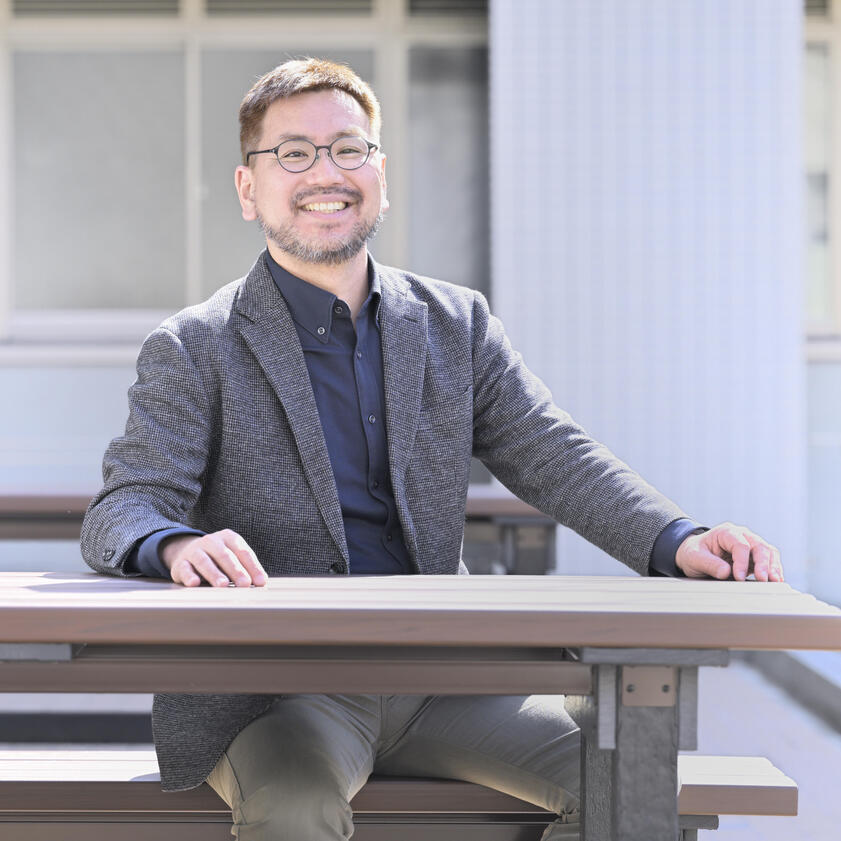
Researchers'
Associate Professor
Masanobu Sakamoto
Center for Digital Humanities and Social Sciences
It is a quote from Akutagawa Prize-winning author Yasushi Inoue (1907–1991). It conveys that diligence and laziness, hope and dissatisfaction, are just two sides of the same coin. The phrase resonates with me because my field of research rarely produces immediate results. It reminds me to always give my best, no matter where I am in the process.
In short, I analyze the classes in schools. Rather than having people who observed the lesson express their impressions or beliefs, my research finds the potential and the issues of both teachers and their lessons through the utterances and the behavioral response of students. Therefore, I use the various kinds of collected data during class to create “lesson visualizations.”
Tracking a student teacher’s movement in front of the blackboard (Source: Sakamoto, Masanobu. “Kyōshi no ‘furumai’ o kagaku suru.” Kyōshi no waza o kagaku suru, edited by Kanji Himeno and Takashi Ikuta, Ikkei Shobō, 2019, p. 92.)
As one example, while supervising mock lessons at a university, I noticed that some student teachers barely moved in front of the blackboard or only moved in a predictable pattern from left to right. This led me to hypothesize that a relationship between the amount of lateral movement and the level of experience of the teacher. I used recordings of the student teachers’ lessons to create an x-axis and then mapped their left-right movements.
When I first started, I wanted to develop an education platform that would allow students to take classes fully remotely. After observing lessons in elementary, junior high, and high schools, however, I realized that I had only ever thought about classes from the perspective of someone taking them. I decided to pursue my current research because I thought that understanding the challenges and possibilities of actual teaching was necessary to create an educational system that has considered the true meaning of learning.
Dr. Sakamoto rode a camel during a three-week stay as a guest lecturer at the Mongolian National University of Education in October 2019.
I find research interesting when the intentions behind the words and behaviors of teachers and students in elementary, junior high, or high school are completely different from what I expected or when they are things I would never have thought of. It makes me think there is still a reason to keep doing research.
The center allows faculty members from different fields of the humanities and social sciences to collaborate on projects and leverage each field’s strengths when analyzing data. For example, my previous research focused on how teachers move in front of a blackboard, but I am interested in exploring the relationship between standing position and the content of what is being said. This would involve examining the similarities and differences between the linguistic and pedagogical meaning of those words. Even thinking about these possibilities sparks so many exciting research ideas.
Back in high school, I leaned more toward the sciences and loved math, especially algebraic geometry. I absolutely hated Japanese language classes. As a child, I did not borrow a single book from the school library, and at one point a library committee member even told me off for it. I hated writing even more, so it is surprising that my life is now centered around writing and reading the books I once despised.
Even on weekends, I can be busy attending research meetings or academic conferences, so finding time for family is not always easy. I try to make it a priority to spend as much time with them as I can, which really helps me refresh. On the rare occasions when I get several days off in a row, we go camping together. I like to disconnect from email and the internet, reading by the campfire while enjoying a cold beer under the stars.
Universities are shifting. There is more and more pressure for quick results and research that is directly applicable to society. This trend makes it harder to pursue the research you truly want to do. Even so, I want to identify research that contributes to both short-term needs and longer-term visions for the future, steadily building knowledge and passing on these insights to the next generation.
Name: Masanobu Sakamoto
Affiliation: Nagoya University Center for Digital Humanities and Social Sciences
Title: Associate Professor
Brief Bio & Hobbies:
Professor Sakamoto was born in Ehime Prefecture in 1977. He earned a PhD in Education from Nagoya University in 2009. He worked as an Assistant Professor at Nagoya University’s Graduate School of Education and Human Development from October 2008 until March 2010 and then worked first as a Lecturer and later an Associate Professor at Aichi Institute of Technology’s Center for General Education until March 2017. He returned to Nagoya University as an Associate Professor at the Graduate School of Education and Human Development, holding this position until March 2024 when he began a joint appointment with the Center for Digital Humanities and Social Sciences. From April 2023 to March 2024, Professor Sakamoto was a visiting scholar at Ontario Tech University in Canada. During his visit, he particularly enjoyed visiting libraries and touring microbreweries. His hobbies include research, camping, and writing haiku.
This article was originally published in Japanese on May 7, 2024, and some information may not be up to date. It has been translated and edited for clarity and readability by the International Communications Office while preserving the original content’s intent. For the Japanese article, please see here.
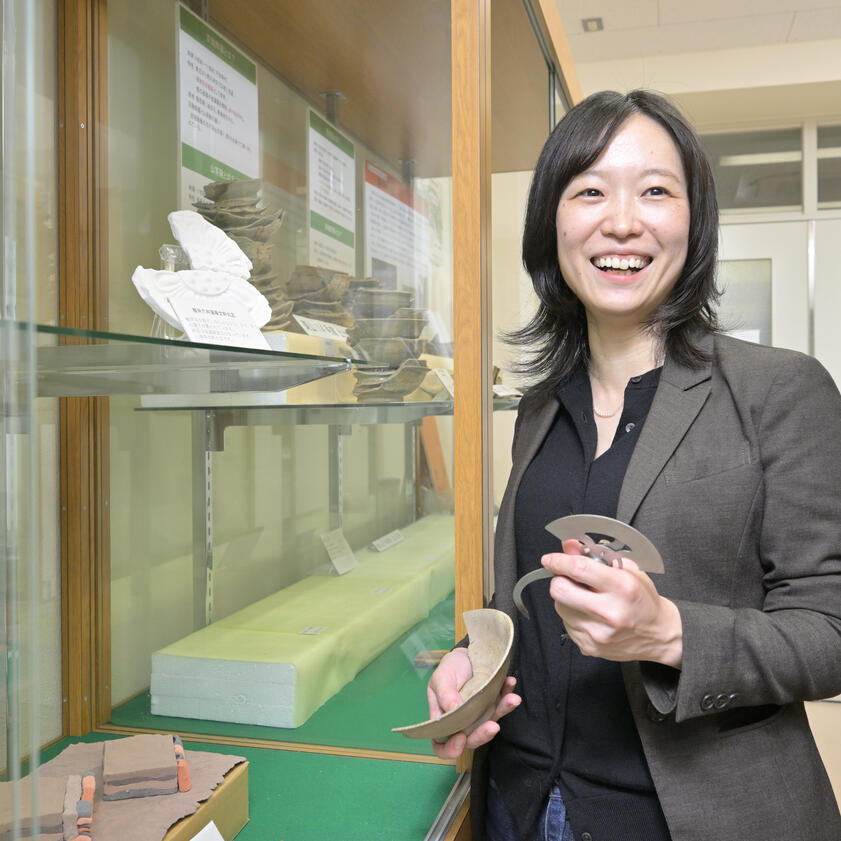
No. 50 August 29, 2025
Associate Professor Tomomi Nakagawa

No. 49 July 23, 2025
Associate Professor Masanobu Sakamoto
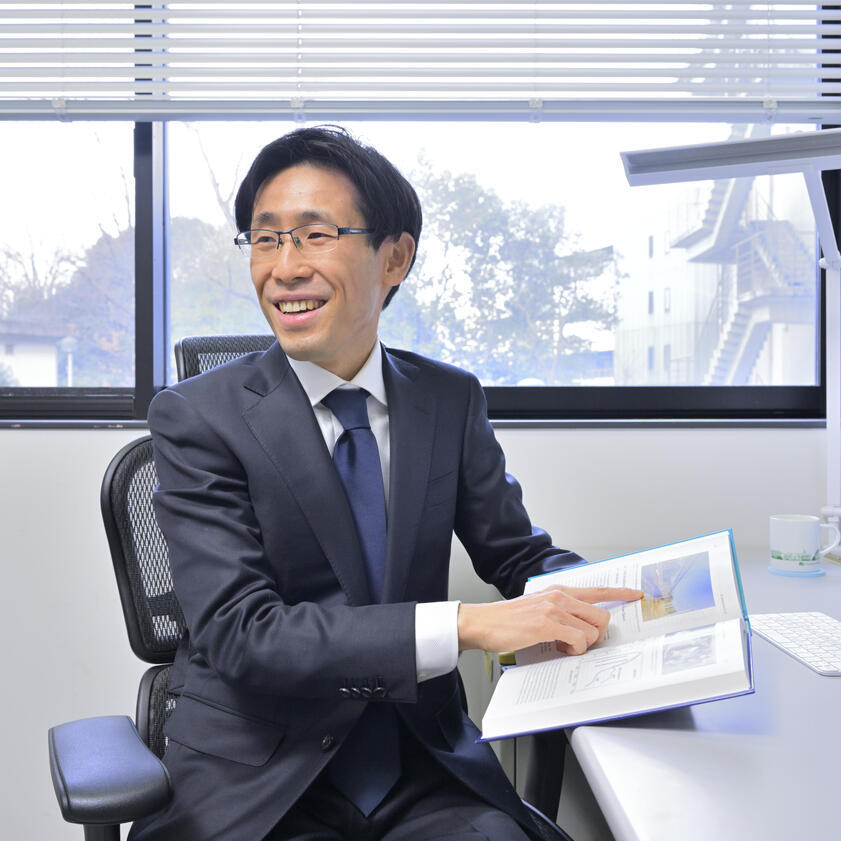
No. 48 June 27, 2025
Associate Professor Kazumasa Iwai
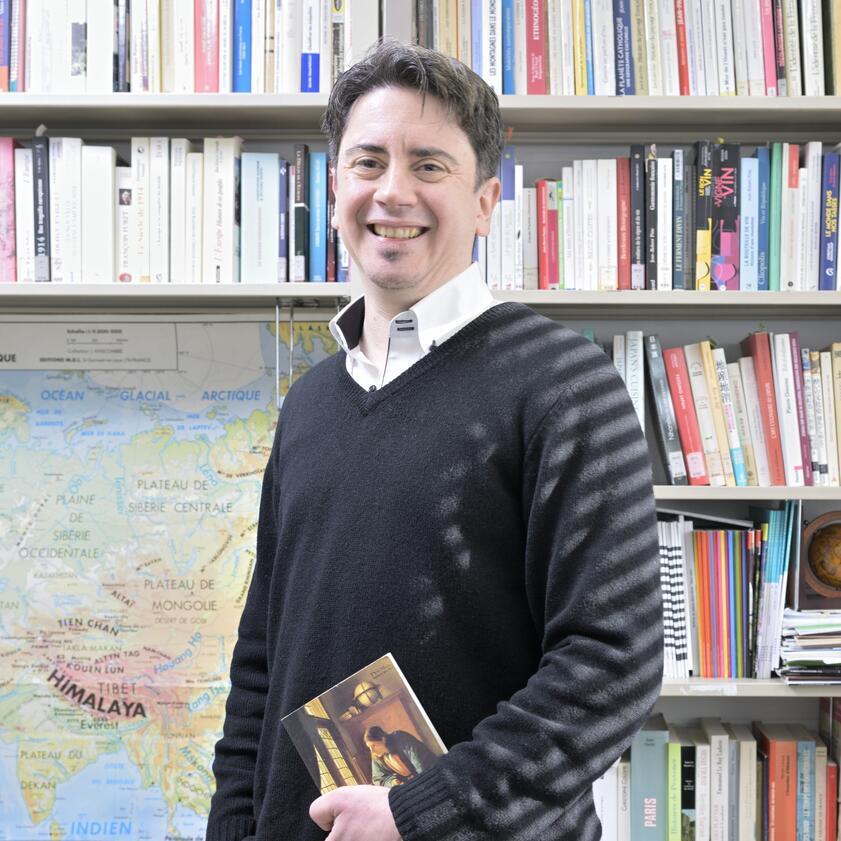
No. 47 May 2, 2025
Designated Associate Professor Nicolas Baumert
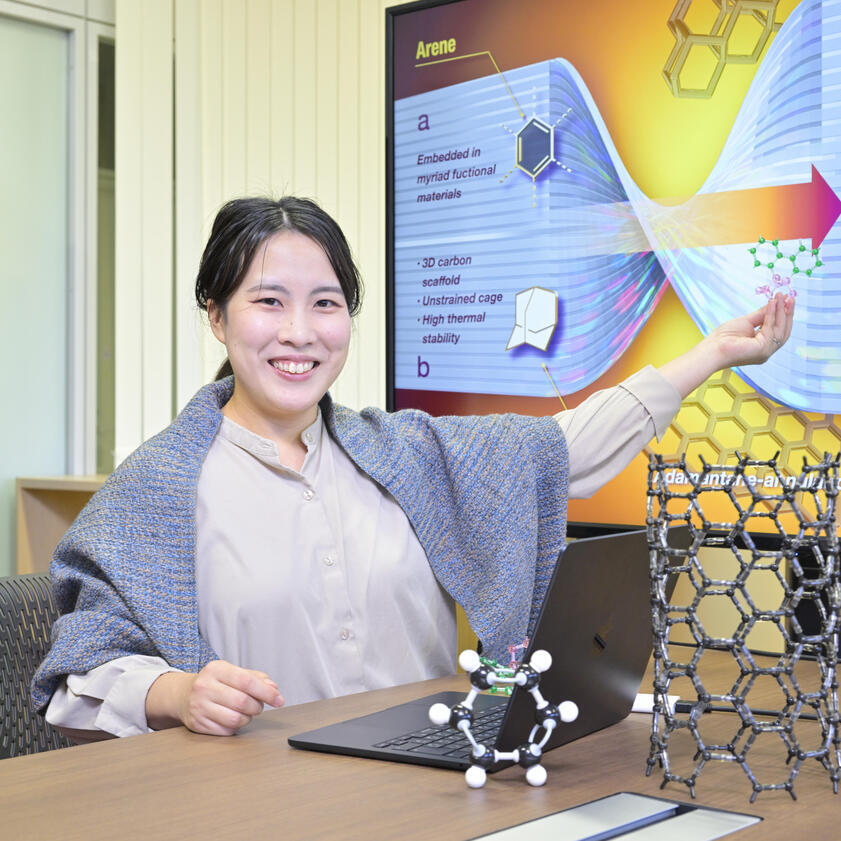
No. 46 March 17, 2025
Designated Associate Professor Akiko Yagi